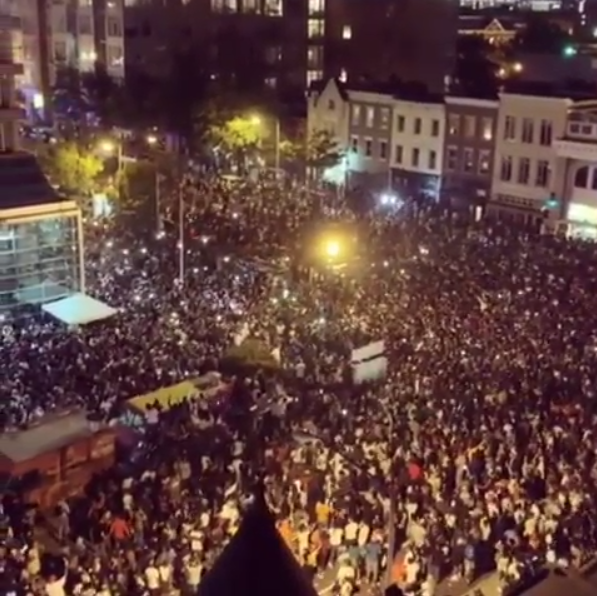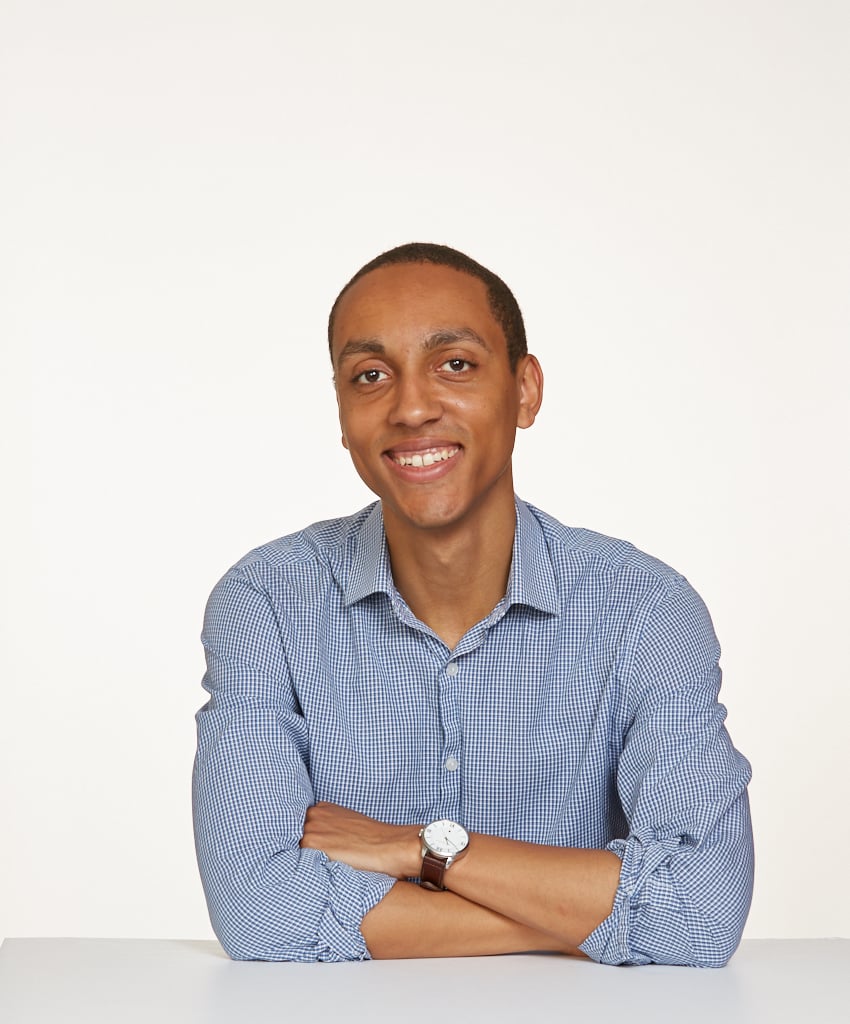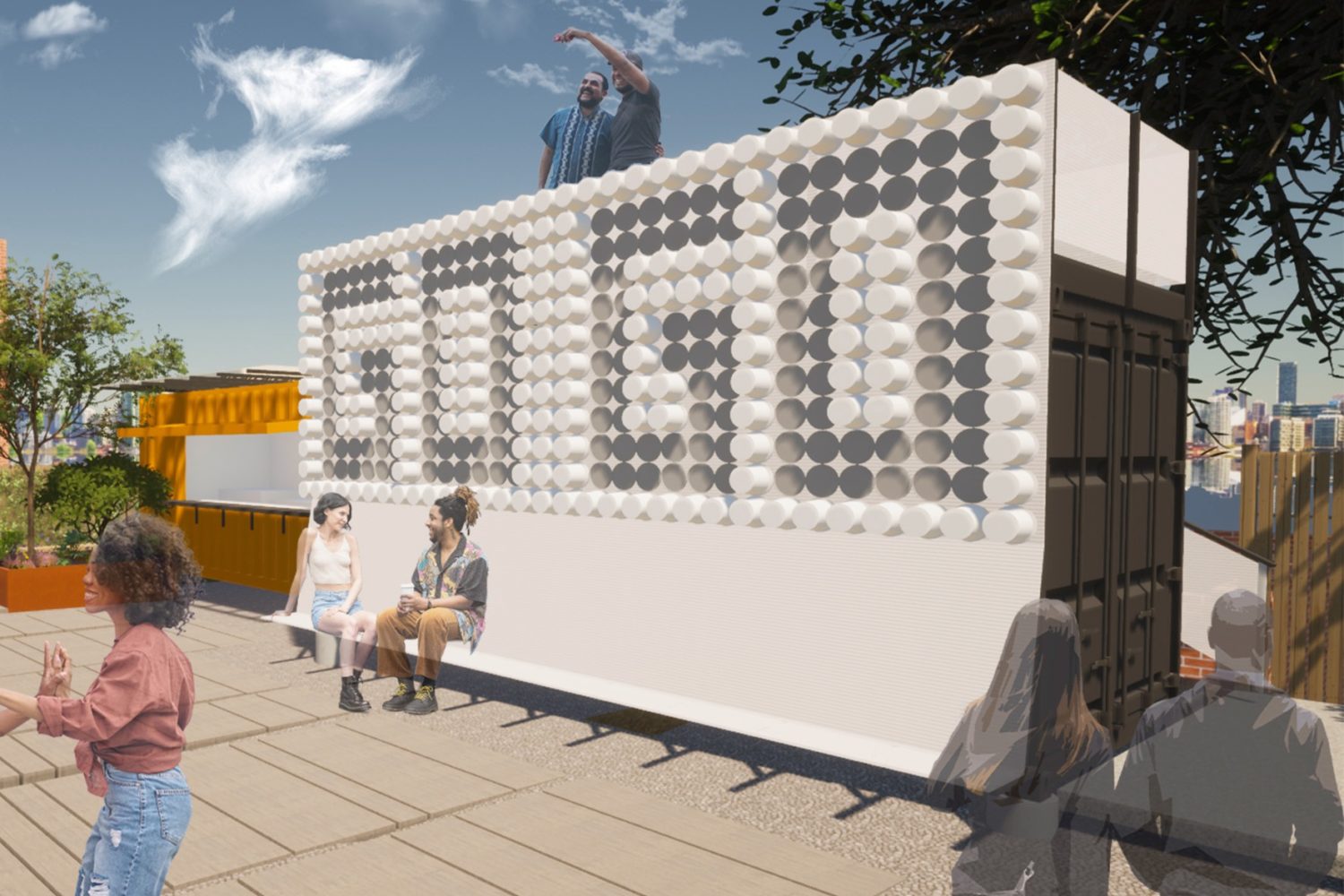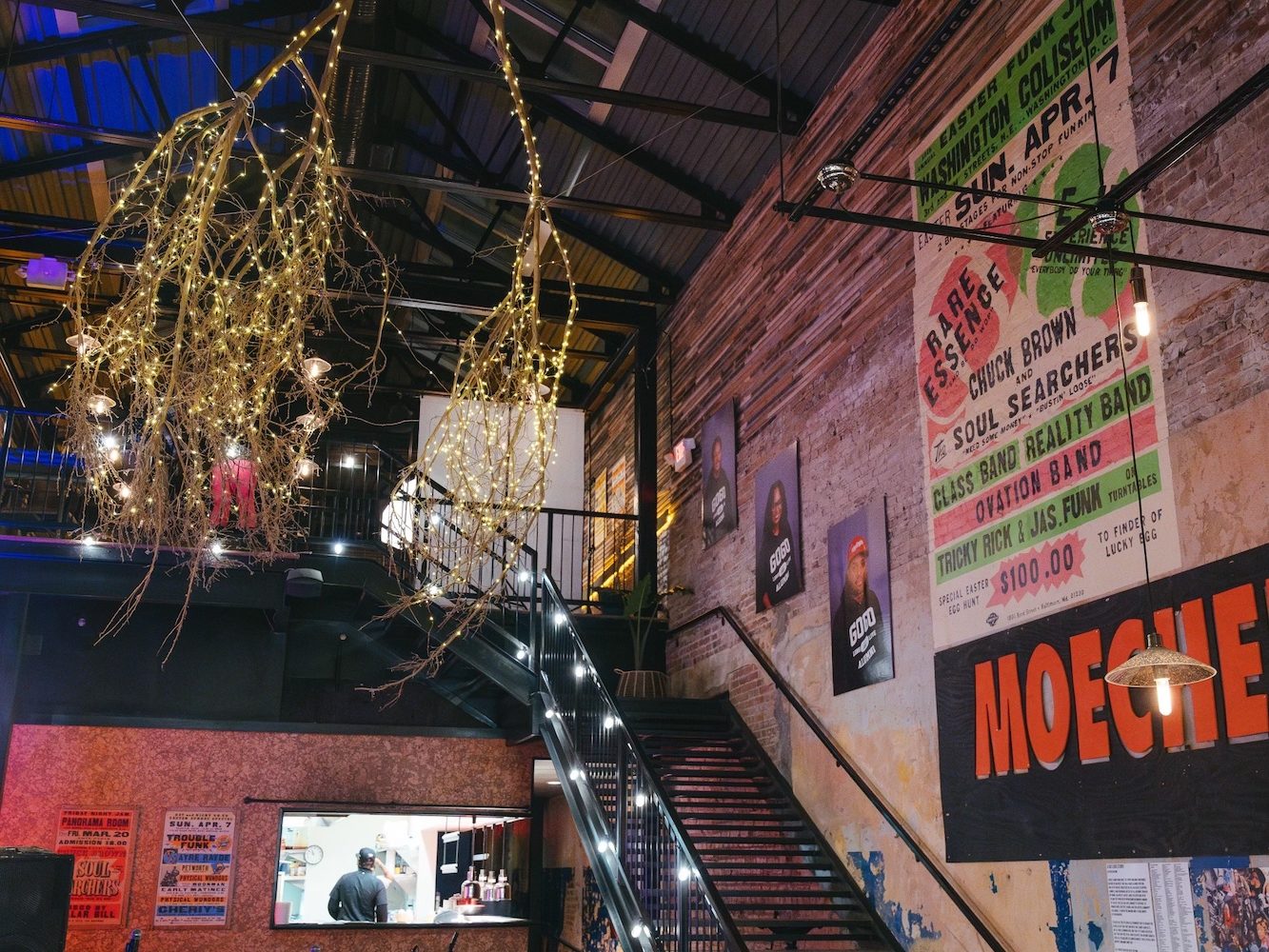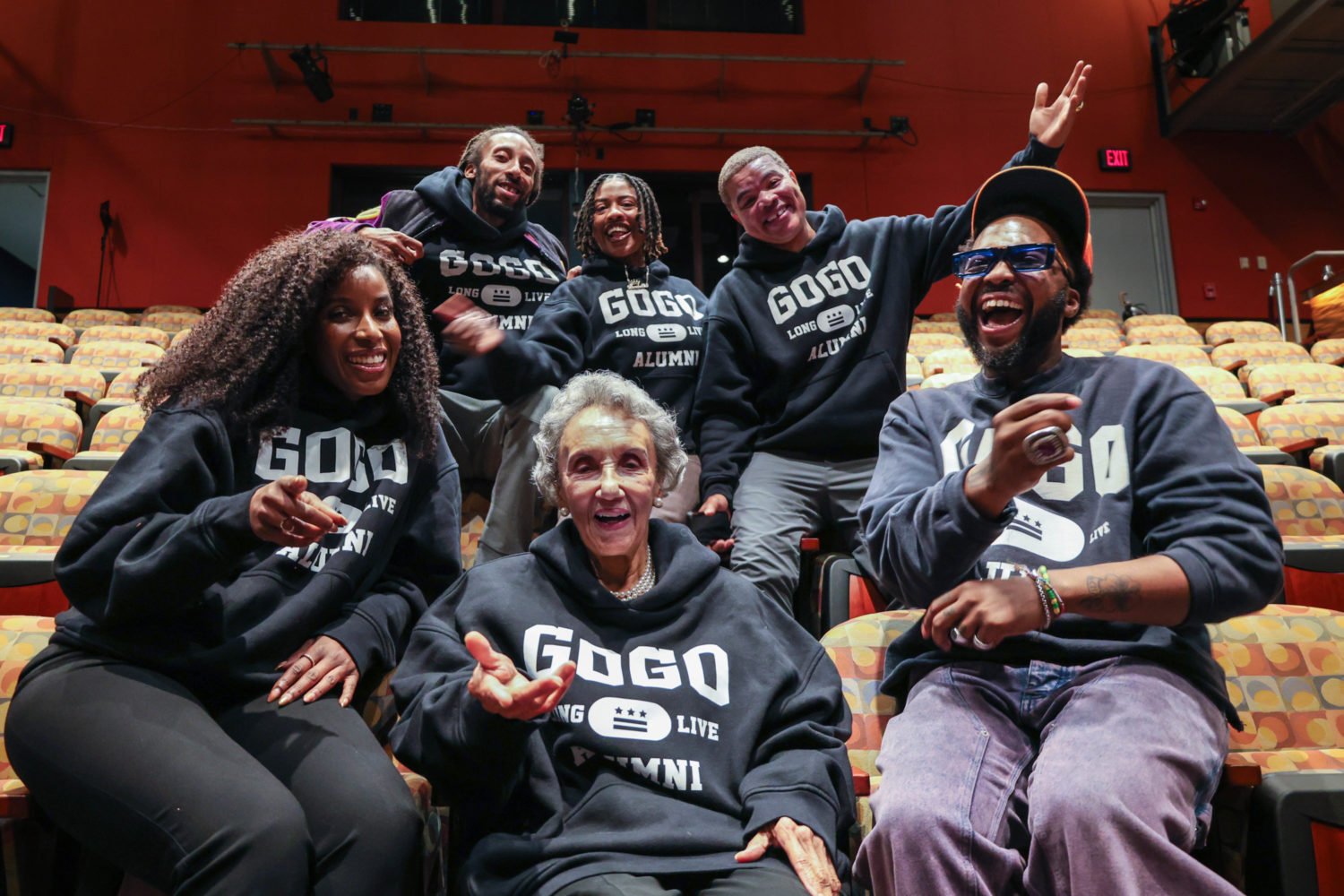Over the past month, the hashtag #DontMuteDC—in response to the reported silencing of go-go music at the MetroPCS in Shaw—has become something of a movement. There have been rallies, concerts, and petitions in DC, and think pieces from Slate and the New Yorker aimed at a broader audience. The proximate cause of the agita was an April 8 incident in which a cell-phone store was ordered to stop playing music outside its storefront on a fast-gentrifying corner of Shaw. The real cause is Washington’s ongoing discomfort with the demographic and economic changes that have swept the city.
Last night, that movement took a much higher-profile turn, in the form of a traffic-stopping concert-cum-demonstration featuring the legendary go-go ensemble Backyard Band. The pop-up show took place at the corner of 14th and U Streets, once the center of black life in Washington, but more recently a center of luxury apartments inhabited by non-black newcomers.
The protests was called Moechella, a composite of “Moe” (a piece of DC slang that roughly means “homeboy/girl”) and Coachella (after the California music festival), and it felt like an inflection point in the fraught politics of a changing, anxious Washington. It was organized by Justin “Yaddya” Johnson, the artist-activist behind Long Live GoGo, a social-media movement that actually predates the MetroPCS fracas.
Johnson, 32, says he’s organized three other rallies at 14th and U since last July. Back then, the motivation was the Amplified Noise Amendment Act, which sought to regulate the volume of DC’s street performers. Johnson says he chose that specific corner because his family was moved out of the 14th Street Corridor as a result of gentrification—or, in his words, “cultural genocide.”
“It’s great for symbolism to show that we can come together and be unified,” he says. “I believe music is one of the most influential forms of getting a message across—it’s the glue of DC. My connection is with the music. We are go-go. Go-go is the culture.”
Last night’s rally, though, was an order of magnitude larger, closing the corner to traffic as thousands of people converged on the intersection. What’s striking is how little advance coverage it got through mainstream mass-media outlets.
Here’s how it came about: Johnson says he first called Backyard Band frontman Anwan “Big G” Glover, organized the performance with the band’s management, put together an itinerary, and word quickly spread on Instagram and Twitter. He also called DJ Domo and DJ Kool, Councilman Robert White, and a friend who is a sound engineer to set up the speakers. Activist Ron Moten organized the demonstration’s police presence, hoping to “de-escalate” any potentially dangerous situations. “It’s just the responsible thing to do, whether it’s a football game, big event, or a large concert,” Moten says.
All told, it took only about four days to get all the bands and DJs involved. “Being from the area and involved in the go-go community,” Johnson says, “it wasn’t difficult to get people out there.”
#MOECHELLA was classic. Three thousand people singing Pretty Girls 🔥🔥 #DontMuteDC ( via @BackyardBand) pic.twitter.com/lNljH31ifI
— DC Maryland Virginia (@DMVFollowers) May 8, 2019
One measure of the nascent movement’s growth: Organizers are already arguing about what it means, who leads it, and what to do next. Tone P, the DC producer behind some of locally-bred hip-hop star Wale‘s most popular (and most go-go-influenced) records, says that the protests are starting to lose focus—and becoming more about Johnson’s Long Live GoGo brand.
“Moechella was great,” says Tone, “but I’m worried it’s losing its point. What happened to the original message? People are excited to get a lot of people on the same corner. I like it, but what are we really accomplishing?”
Tone says the goal should be to create action items, such as inviting organizers to speak in front of the crowd about voting, education, and ending gun violence across the District—longstanding causes that go beyond the housing issues at the core of today’s gentrification.
One activist he hopes to see speak is Ron Moten, who has been influential in the #DontMuteDC movement and started a petition to keep go-go music playing at the MetroPCS. Moten attended Moechella to help register people to vote.
Johnson says he has yet to pick a date for the next major event but says there will be more to come this spring and summer. They won’t all be so huge—Johnson’s already organized a few go-go flashmobs at “key locations” like Gallery Place and Foggy Bottom where street performers are regulars. “At this point,” Johnson says, “the only ones who can get in our way is us.”

